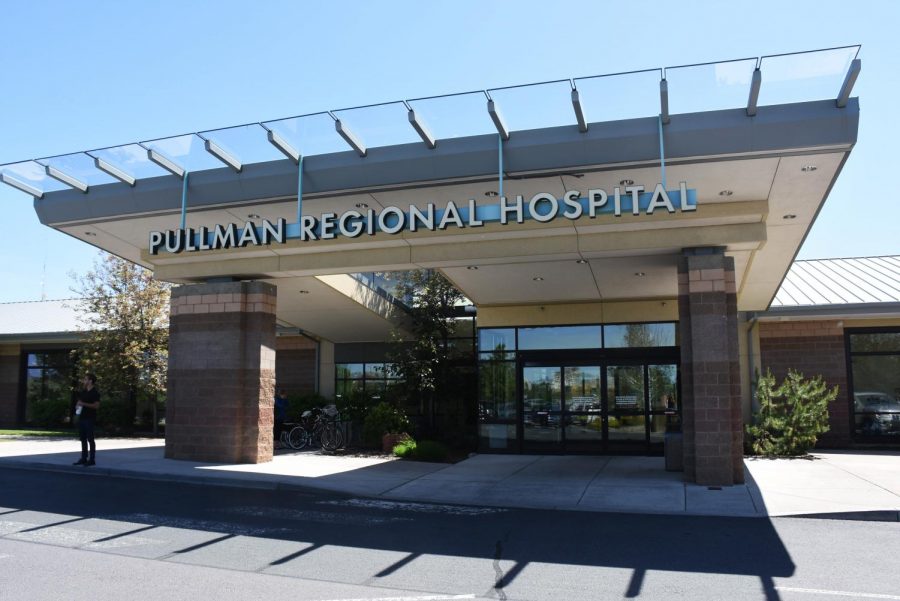Hospital requires patients to have doctor’s order for COVID-19 testing
Individuals with chronic, emergent conditions should still seek care; fewer symptomatic people being tested
GABRIEL BRAVO | DAILY EVERGREEN FILE
Patients who want to get tested for COVID-19 must have a physician’s order.
May 19, 2020
Pullman Regional Hospital moved away from triage testing for COVID-19 and is now requiring patients to have a physician’s order before they can get tested for the virus.
Patients who want to get tested must first meet with their primary care doctor, said Diane Whittick, infection prevention specialist at PRH. Once they are approved for testing, they can visit the hospital and park in stalls dedicated to mobile testing.
“We are kind of going away from ‘anybody can show up’ — not being in pain or hurt, or just to ask questions,” Whittick said. “[We are] urging everybody to start to reach back out to their primary care physicians.”
Whittick said people who are critically ill should still go to the emergency room. ReadyCare is treating patients who do not have a primary care provider.
Megan Guido, director of marketing at PRH, said patients who really need care should not wait to get it because delaying treatment could make the problem worse. If people have chronic or emergent conditions and ordinarily go to the hospital or their doctor’s office, they should reach out to their health care provider.
“These are folks that would normally come in and are staying home, thinking that ‘oh, the hospital is too busy,’ or they’re concerned about the safety of the hospital,” Guido said. “We’re doing everything we can to keep people safe.”
Whittick said the number of symptomatic people being tested has significantly decreased in the last several weeks, but the number of tests being administered has stayed roughly the same.
Anywhere from five to 20 people are being tested at the hospital each day, she said. This includes about two to three people a day who are symptomatic. Others receive tests in order to have surgery.
Whittick said patients must be tested before having a procedure or surgery at the hospital. PRH is not yet offering elective surgeries.
Guido said physicians are still performing non-urgent but necessary procedures. Doctors and patients must decide together if a procedure fits these qualifications.
PRH is also offering obstetric testing for pregnant women in order to provide adequate care for the infant, Whittick said.
Test results take about 24 to 48 hours at PRH, she said, but can take different lengths of time at other medical institutions.
Whittick said chairs are spaced six feet apart in waiting rooms at PRH, and they clean areas every two hours. Each patient is given a mask when they leave and additional precautions are used when a patient is symptomatic.
PRH has not hospitalized anyone for a positive case of COVID-19, Guido said.









